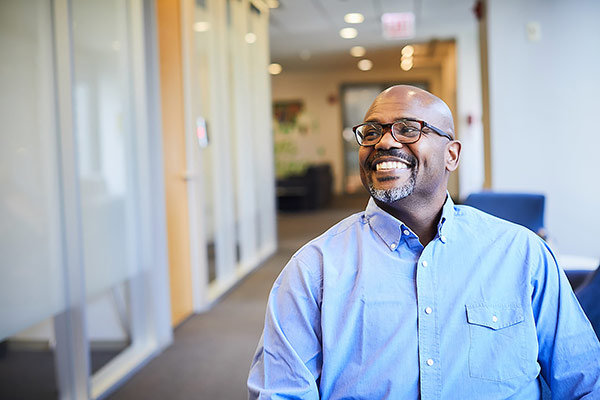By Tyrone Mitchell, Diversity and Inclusion Manager

I started working at BP 24 years ago, after studying mechanical engineering at Howard University, a historically black college in Washington, DC. Since then, I‘ve gained a lot of experience in various roles: working as a unit engineer at the Yorktown Refinery in Virginia; an Operations Superintendent at the Texas City Refinery; and as Operations Manager for BP’s pipelines and terminals for the company’s East of the Rockies business, to name a few!
After two decades, my career underwent a huge transformation: I became the diversity and inclusion manager for the Fuels North America Business.
What led to this change? I’d experienced what it feels like to be the only black person in the room and found myself asking questions related to diversity and inclusivity. I was then lucky enough to be in a position where I was tasked with providing the answers.
As 2020 gets underway, I’ve decided to reflect on three key learnings from the past 24 years and, more generally, what it means to be an advocate for diversity and inclusion.
Learning 1 – Encourage people to find their own voices
For me, diversity and inclusion is all about empowering others. While it may seem like a small barrier, it takes courage to find your voice in a room where you are the only person who looks different. One of the reasons I wanted to get into this space was to work out how I can continue to make pathways for others, whether for minorities or women.
When I look back, this is something that underpins all the advances I managed to push forward in the diversity and inclusion space. It’s about taking a step back, listening, and encouraging others to find the confidence to speak up. This is advice I have had to follow myself, especially when working with the leadership team to discover how best to approach diversity and inclusion strategically. I had to encourage others to look at things through a diversity lens to ensure that our work was impactful.
Ultimately, we have been able to help transform BP’s company culture to one of accountability. This is something I am incredibly proud of. Now, the diversity ambitions we have are clear—we want to do more in this space and are not okay with ignoring our own faults.
Learning 2 – Be proud of your career background
I’m an analytical person and I love helping people solve problems. If I didn’t work for BP, I’d probably be a counselor. I learned a lot from my engineering background and have been able to bring my analytical and investigative skills to my HR role—a perspective that has proved invaluable.
My formative years as an engineer with BP gave me a unique view of how the business works. They provided me with a varied set of skills and created an understanding of the challenges faced by employees. As a diversity and inclusion manager, it is important to be able to understand the whole business and what each segment is trying to achieve. A compressive understanding leads to increasingly successful diversity and inclusion initiatives, and streamlined ways of working.
I’ve learned that it is important to broaden your horizons, and I am proud that I was able to find the courage to try something new. Because you’re an engineer doesn’t mean you can’t understand people just as well as equipment!
Learning 3 – Take advantage of training programs you have available
Throughout my career I’ve been supported whenever I’ve needed to step up and become a leader. I have been involved in several company-provided leadership courses. And when I wanted to develop specific skills, BP provided me with an executive coach to help me understand what I needed to do differently.
Training should be varied—it doesn’t always have to be in a traditional lecture format. I’ve learned a lot from more informal processes. One program BP participates in is called the Executive Leadership Counsel, where African American employees can meet black CEOs from around the country and learn from their experiences how to navigate the workplace. One key lesson I learned was how to set up my own “board of directors” to ensure that I am performing and that I am being coached from different perspectives. All in all, it was a very valuable experience.
My takeaway would be this: Own your own development. Companies put a lot of money into training their employees, so take advantage of the opportunities!
Conclusion
Since I joined the company 24 years ago, I have learned a lot and am proud of the strides we have made to become a more inclusive place to work. But we have to be realistic and recognize that there is more work to be done. I do not doubt that there is plenty still to learn. We are ambitious, and because of this ambition we are moving in the right direction. To anyone seeking to embark on a similar journey, I suggest you encourage others to find their voices, embrace their backgrounds, and take advantage of all the training opportunities available.






